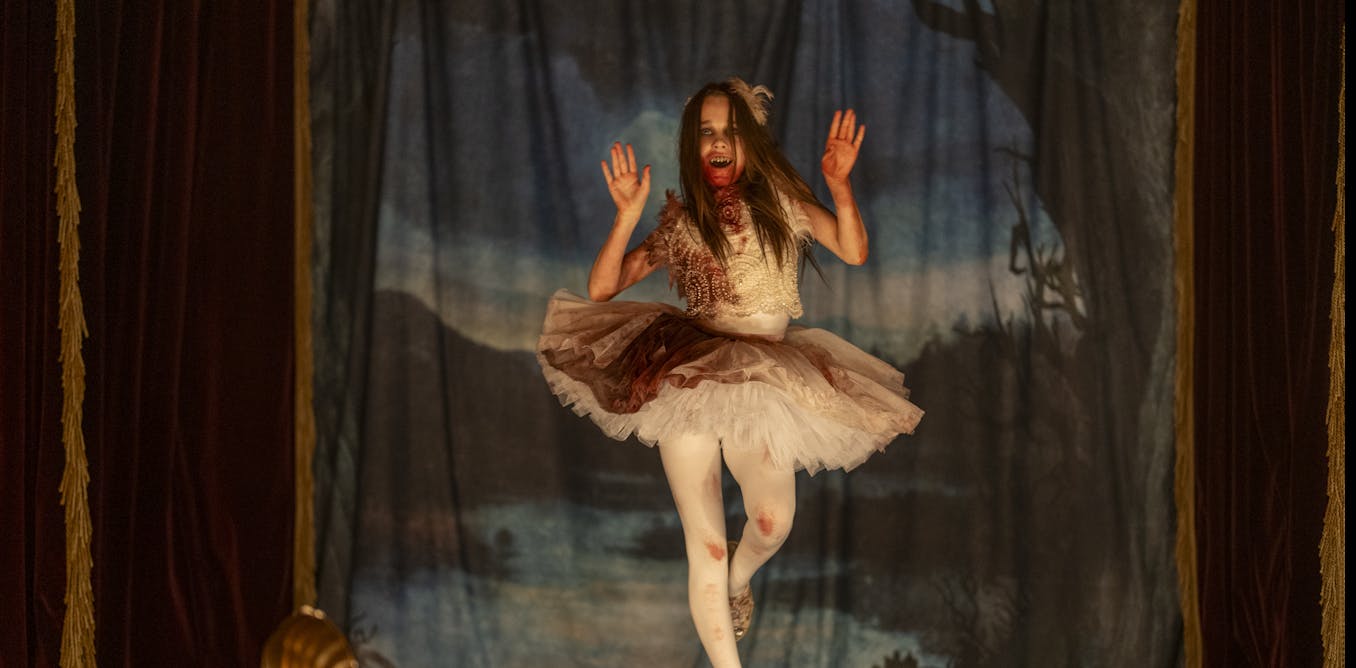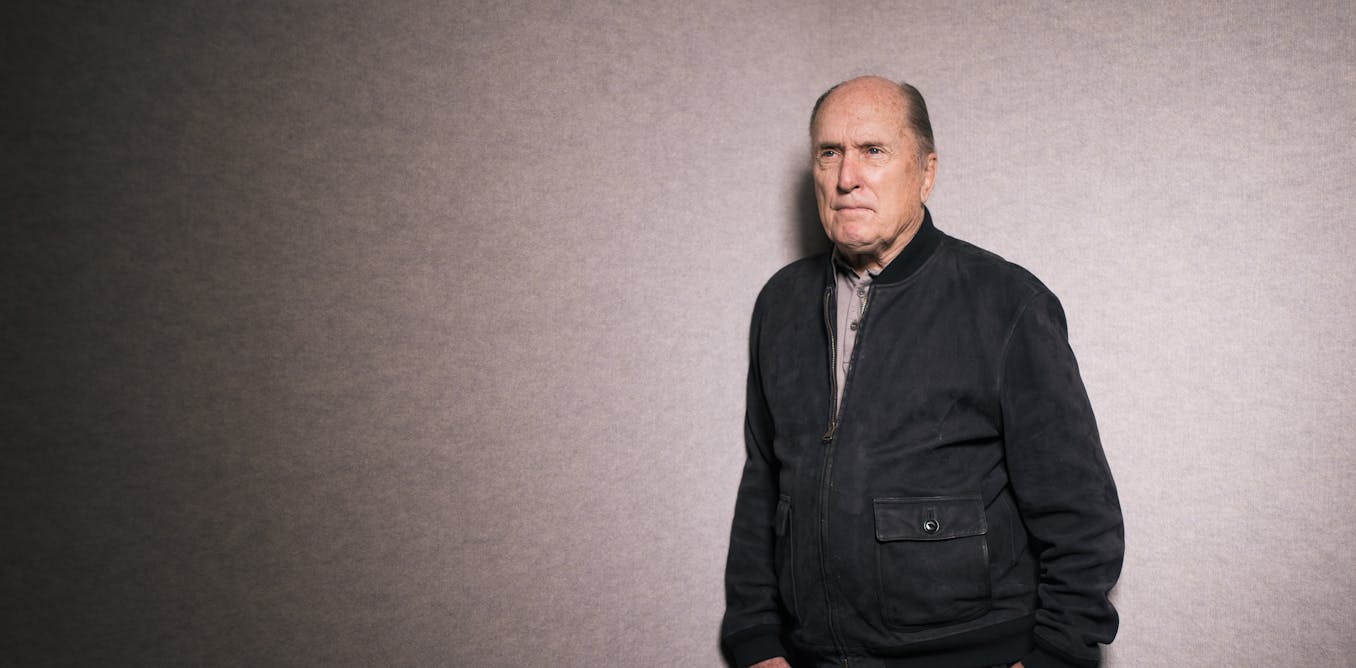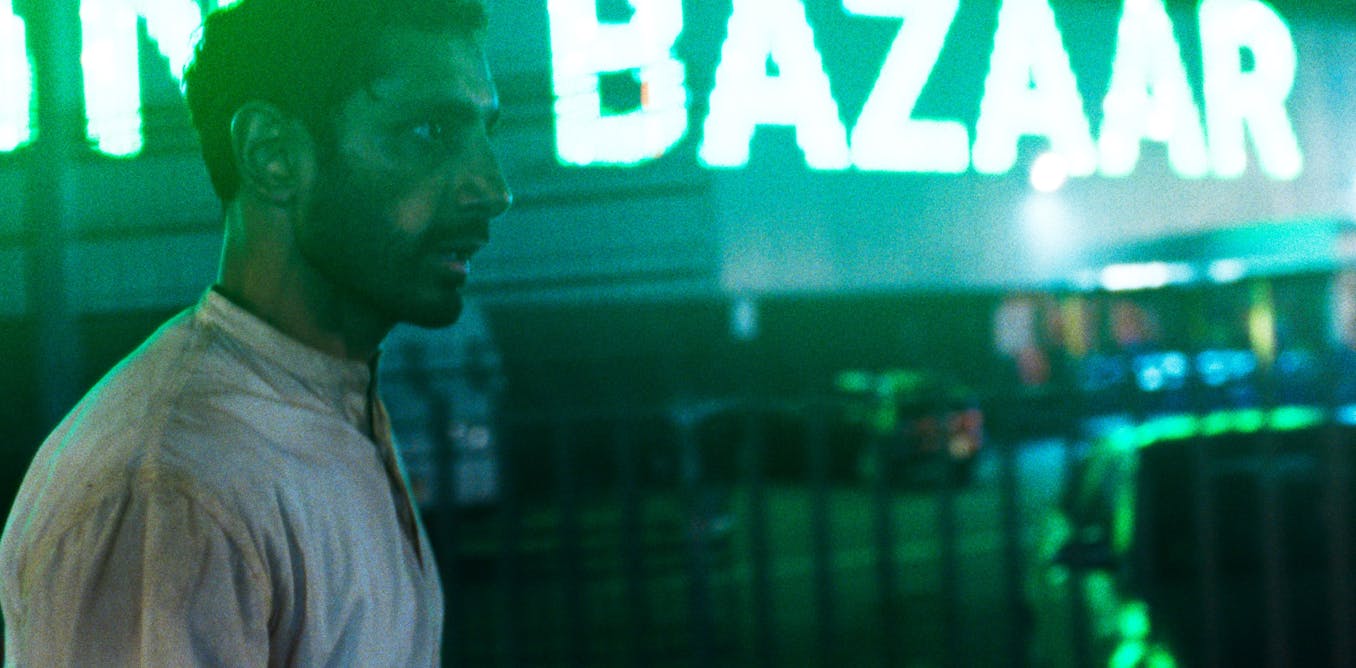Warning: this article contains spoilers for Abigail.
The horror film Abigail sets out to offer a new and refreshing perspective on the vampire tradition. Gone are the male Draculas of old and the fetishised lesbian vampires of the 2000s that haunted the vampiric horror genre in films like Jennifer’s Body (2009). Instead, the titular Abigail (Alisha Weir) is a young ballerina – the picture of childlike innocence.
Child vampires are rare in film, though the commercial success of M3gan (2022), a horror film about an evil AI doll that looks like an eight-year-old girl, proved that monstrous young girls are a marketable film villain.
In Abigail, a group of ragtag criminals kidnap a young girl (not knowing that she’s actually a bloodthirsty vampire) and hold her in a mansion in order to each receive a hefty payout. Though she appears to be a child, we soon learn Abigail is centuries old, and has developed a habit for “playing with [her] food” – this is a vampire hellbent on getting what she needs.
The cast is stacked with familiar faces, headed by Scream (2022) star Melissa Barrera as recovering drug addict and medic Joey. Other stars include Angus Cloud as Dean, Kathryn Newton as ditsy hacker Sammy, and Dan Stevens as former detective Frank. The ensemble cast works well, adhering to the traditional horror trope of a group of strangers turned allies.
Abigail has a lot of potential to offer its audiences: popular horror themes with a fresh twist in its child star. But none of the film’s strengths can outweigh its biggest weakness – its antiquated treatment of women.
Scream queens and motherhood
Between the bloodthirsty young ballerina and a group of criminals (most of whom have no issue harming Abigail even when they think she is a regular young girl) there’s little room to root for anyone. In having no clear protagonist, Abigail could have told an interesting and compelling story.
But at a time when women in horror are finally becoming more complex (see so-called “good for her” films such as Midsommar and Ready or Not), Abigail’s treatment of its women characters is frustrating.
In her role as Joey, Melissa Barrera continues her reign as a contemporary scream-queen – but she shines despite the writing, not because of it. Joey’s motivations and background are frequently overshadowed by the emphasis and importance placed on her maternal instincts.
Joey is the only criminal who objects to hurting Abigail. She also takes the lead when it becomes apparent all is not what it seems. It is established she has a son, who she has abandoned, but her motherly instinct shows in her treatment and comfort of Abigail.
Despite being assigned an androgynous nickname earlier in the film, Joey adheres to traditional feminine maternal behaviour. She forms a bond with Abigail, who is revealed to act out because of her absent father in unsuccessful bids for his attention. This supposed atonement for her previous lack of maternal instincts, in abandoning her son, is the reason that Joey is the only member of the criminal group to survive the film.
Universal Studios
Rewarding the final girl
Joey’s character adheres to the guidelines of the “final girl” trope (the final heroine left at the end of a horror movie). She remains sexually pure, rejecting the advances of another criminal. She defies gender roles through her nickname and her action-ready nature, leading the pack against Abigail. Yet the film seems to save her because of her feminine instincts and her desire to protect Abigail from harm.
Joey being a maternal figure to Abigail isn’t an inherently negative plot point, but her survival hinging on it, and not her strength or mind, inextricably ties her value to her status as would-be mother. She does not save herself, whereas “final girls” generally emerge triumphant because of their determination. Joey gets to live because she cares for others – she has utilitarian purpose in a patriarchal world.
When Abigail and Joey team up in the film’s final scenes to kill Frank, who is now a vampire, their success after an extensive fight scene is as close as the film comes to a feminist moment. But just as Abigail decides to let Joey leave, her vampire father (the film’s version of Dracula) arrives. This stunts any progressive female representation by introducing another dominant male figure moments after Frank was killed.
Abigail has to beg her father to let Joey live, meaning the women of the film are once again held accountable to a man. Joey fails to take her place among final girls of past, such as Laurie Strode in the Halloween franchise and Sidney Prescott in the Scream series, because she wins her life not by brute force, but by following maternal instincts.
I found Joey’s “reward” of life for her conformity to patriarchal ideas of how women should behave tiresome. This is a film that could have taken its place in the horror hall of fame, but instead ties itself up in its references to its classic horror roots, meaning it falls prey to gender standards of old.

Looking for something good? Cut through the noise with a carefully curated selection of the latest releases, live events and exhibitions, straight to your inbox every fortnight, on Fridays. Sign up here.

The post “child vampire horror falls prey to antiquated gender stereotypes” by Lizzie Wright, Postgraduate Researcher in the School of English, University of Leeds was published on 04/23/2024 by theconversation.com


































